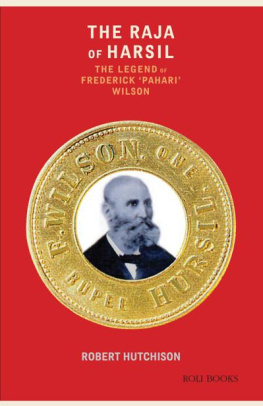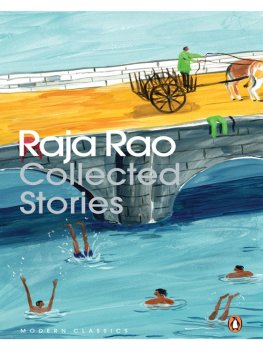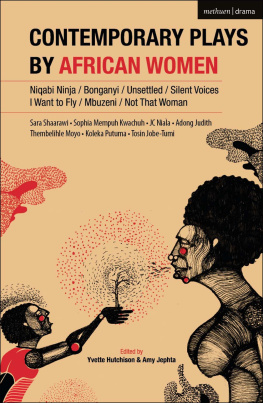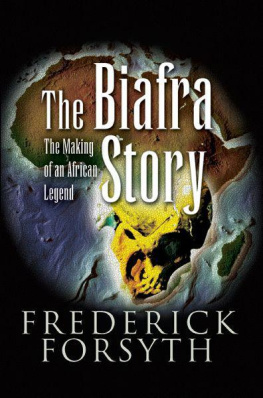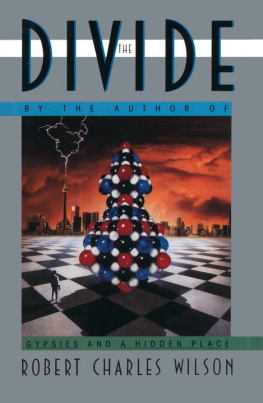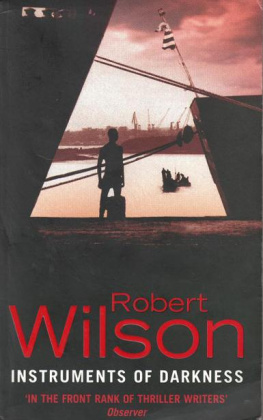

Robert Hutchison studied at McGill University in Montreal, Canada and interrupted his studies to travel and begin a career in journalism. A native of Quebec, he has lived in Switzerland for many years. He is fluent in English and French.
From 1961 to 1976, Hutchison was a correspondent for the Sunday and Daily Telegraph of London. He has also contributed articles to The Sunday Times (London) and The Smithsonian (Washington). His photos have appeared in leading publications around the world. He is the author of the following works: Vesco, Off The Books, Juggernaut, In the Tracks of the Yeti and Their Kingdom Come.
When not writing or photographing his favourite pastimes are ski-touring in the Alps and trekking in the Himalayas. While researching a feature article on the Garhwali activist Sunderlal Bahuguna in 1987 he fell in love with Indias Garhwal region and has visited the area many times since. Mussoorie, he says, is my second home.
OTHER LOTUS TITLES
| Anil Dharker | Icons: Men & Women who Shaped Todays India |
| Aitzaz Ahsan | The Indus Saga: The Making of Pakistan |
| Ajay Mansingh | Firaq Gorakhpuri: The Poet of Pain & Ecstasy |
| Alam Srinivas | Women of Vision: Nine Business Leaders in Conversation |
| Amarinder Singh | The Last Sunset: The Rise & Fall of the Lahore Durbar |
| Aruna Roy | The RTI Story: Power to the People |
| Ashis Ray | Laid to Rest: The Controversy of Subhas Chandra Boses Death |
| Bertil Falk | Feroze: The Forgotten Gandhi |
| Harinder Baweja (Ed.) | 26/11 Mumbai Attacked |
| Harinder Baweja | A Soldiers Diary: Kargil The Inside Story |
| Ian H. Magedera | Indian Videshinis: European Women in India |
| Kunal Purandare | Ramakant Achrekar: A Biography |
| M.J. Akbar | Blood Brothers: A Family Saga |
| Maj. Gen. Ian Cardozo | Param Vir: Our Heroes in Battle |
| Maj. Gen. Ian Cardozo | The Sinking of INS Khukri: What Happened in 1971 |
| Madhu Trehan | Tehelka as Metaphor |
| Manish Pachouly | The Sheena Bora Case |
| Moin Mir | Surat: Fall of a Port, Rise of a Prince, Defeat of the East India Company in the House Of Commons |
| Monisha Rajesh | Around India in 80 Trains |
| Noorul Hasan | Meena Kumari: The Poet |
| Prateep K. Lahiri | A Tide in the Affairs of Men: A Public Servant Remembers |
| Rajika Bhandari | The Raj on the Move: Story of the Dak Bungalow |
| Ralph Russell | The Famous Ghalib: The Sound of my Moving Pen |
| Rahul Bedi | The Last Word: Obituaries of 100 Indian who Led Unusual Lives |
| R.V. Smith | Delhi: Unknown Tales of a City |
| Salman Akthar | The Book of Emotions |
| Sharmishta Gooptu | Bengali Cinema: An Other Nation |
| Shrabani Basu | Spy Princess: The Life of Noor Inayat Khan |
| Shahrayar Khan | Bhopal Connections: Vignettes of Royal Rule |
| Shantanu Guha Ray | Mahi: The Story of Indias Most Successful Captain |
| S. Hussain Zaidi | Dongri to Dubai |
| Thomas Weber | Going Native: Gandhis Relationship with Western Women |
| Thomas Weber | Gandhi at First Sight |
| Vaibhav Purandare | Sachin Tendulkar: A Definitive Biography |
| Vappala Balachandran | A Life in Shadow: The Secret Story of ACN Nambiar A Forgotten Anti-Colonial Warrior |
| Vir Sanghvi | Men of Steel: Indias Business Leaders in Candid Conversation |
FORTHCOMING TITLES
| Jenny Housego | A Woven Life |

ROLI BOOKS
This digital edition published in 2020
First published in 2020 by
The Lotus Collection
An Imprint of Roli Books Pvt. Ltd
M-75, Greater Kailash- II Market
New Delhi 110 048
Phone: ++91 (011) 40682000
Email: info@rolibooks.com
Website: www.rolibooks.com
Copyright Robert Hutchison, 2020
All rights reserved.
No part of this publication may be reproduced, transmitted, or stored in a retrieval system, in any form or by any means, whether electronic, mechanical, print reproduction, recording or otherwise, without the prior permission of Roli Books. Any unauthorized distribution of this e-book may be considered a direct infringement of copyright and those responsible may be liable in law accordingly.
eISBN: 978-81-945973-4-6
All rights reserved.
This e-book is sold subject to the condition that it shall not, by way of trade or otherwise, be lent, resold, hired out, or otherwise circulated, without the publishers prior consent, in any form or cover other than that in which it is published.
For Lucia and Tamara
Contents
Authors Note
F rederick Pahari Wilson is a historical figure. He did exist, although his origins are strangely obscure. He passed through the British hill station of Mussoorie for the first time in the early 1840s, but nobody is quite sure precisely when or why. One thing, however, is certain: within his lifetime he became a legend throughout the North-West Provinces of British India. In Garhwal that legend lives to this day, even if Wilson has been forgotten by historians and is totally unknown in his home country.
He claimed to be from a middle-class Yorkshire family and grew up around Wakefield, near Leeds. At various times he described himself as merchant, cragsman, forester or contractor. Others called him a Ranger of the Himalayas. His life was adventuresome to say the least. Early in his career he was a deserter on the run. He settled at Harsil, a remote village in the Bhagirathi valley near the source of the Ganges. He became a spy who trained other spies to infiltrate the lands to the north. In this context he knew George Hayward, the headstrong young Englishman who in 1870 was murdered in Dardistan while trying to reach the source of the Oxus.
One of the problems in attempting to discover Wilson is that if you speak to any six persons in Tehri-Garhwal today you are likely to get six different versions of his life, all with some concordant facts but all essentially different. We know that he had two wives, both from Harsils neighbouring village of Mukhba. The prettier one was Raimatta, who proved unable to bear children. The more enduring one was her aunt, Sungrami, whose nickname was Gulabi. She was two years younger than her niece and bore Wilson three sons: Nathanial, Charles and Henry. The people of Harsil and Mukhba still tell tales about them, using their local names of Natthu, Charli Sahib and Indri.
A few years after settling in Harsil, Wilson petitioned the raja of Tehri-Garhwal, Sudarshan Shah, for an exclusive concession to hunt musk deer in the Garhwal Himalayas. The raja rejected his plea but recognized Wilson as a future source of revenue for the royal coffers. He asked whether the Englishman might desire something else. Wilson requested a timber concession instead. This was granted against an annual payment of Rs 150, later increased to Rs 400 a year. Wilson introduced commercial timbering to the Himalayas and it made him immensely rich, perhaps the richest man in northern India. With timbering he brought progress to a region that had never known a cash economy until he minted his own coin, the Wilson rupee. The local people called him Hulseyn Sahib, Hulseyn being their transliteration for Wilson.
Next page
